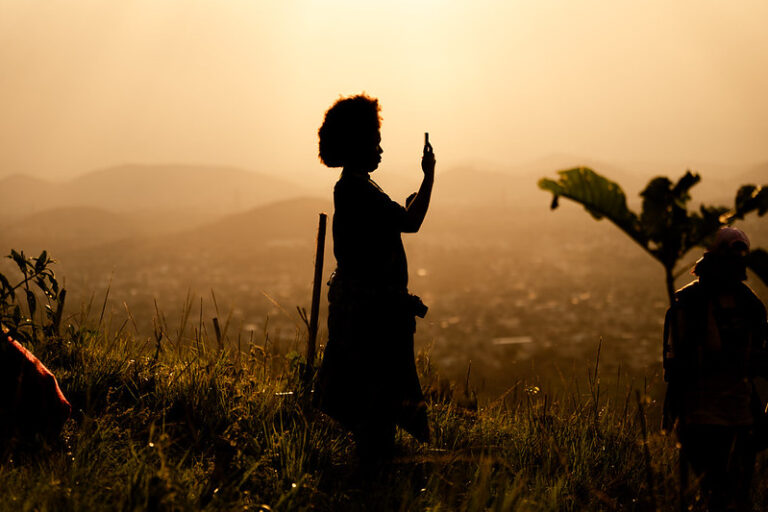By Natalia Viana | Agência Pública, Brazil
The words that were spoken by Donald Trump in his infamous speech two weeks ago- the press “has become the enemy of the people” – are perhaps the password for those who see good journalism as a barrier to his plans: act now. Words, as we know, have consequences in the real world. As has investigative journalism, which exposes wrongdoings and crimes committed by people who used to believe themselves were invincible.
While in the United States Trump’s followers painted “murder the press” on a Capitol’s door, in Brazil those who attack journalists have been using increasingly extravagant methods to try to shut us up. We are still in the second week of 2021 and recent news already shows that this will be a year of many attacks on journalists.
On January 6h, Repórter Brasil, Agência Publica’s partner in investigating the harmful effects of pesticides, suffered a series of online attacks that took its website down several times.

The attackers sent blackmail anonymously with a threat: either the team delete all files from 2003 to 2005, or the website would remain under attack.

Repórter Brasil did not yield, and then the attackers tried to break into the organisation’s headquarters. Journalism advocacy organisations, such as Abraji, have issued a strong statement: .
“Abraji demands that the authorities investigate the attacks quickly and identify the criminals. The episodes are not just a concrete threat to the free press. They represent an attack on society, which has the right to be informed through independent and pluralistic vehicles, such as Repórter Brasil, which, in 20 years, has consolidated itself as one of the most important initiatives for investigative journalism. Abraji does not accept ultimatums and illegal constraints imposed on journalists and vehicles. Criminal acts like these violate the fundamental right of freedom of expression, guaranteed by art. 5, item IX of the Federal Constitution.
Here at Pública, we have received a different kind of ailment from digital criminals. Since last year, fake e-mails have asked us to remove the article “The Empire of Isabel”, which details how the daughter of the former dictator of Angola, José Eduardo dos Santos, took advantage of her father’s political power to the facade and inside information, become the richest woman in Africa.
 The article was published originally in English by the the International Investigative Journalists Consortium (ICIJ), under the name “How Africa’s richest woman exploited family ties, shell companies and inside deals to build an empire”.
The article was published originally in English by the the International Investigative Journalists Consortium (ICIJ), under the name “How Africa’s richest woman exploited family ties, shell companies and inside deals to build an empire”.
Based on more than 715,000 confidential financial and business records and hundreds of interviews, the cross-border investigation offered a rare case study of a growing global problem: thieving rulers, often called kleptocrats, and their family members and associates are moving ill-gotten public money to offshore secrecy jurisdictions, often with the help of prominent Western firms. From there, the money is used to buy up properties, businesses and other valuable assets, or it is simply hidden away, safe from tax authorities and criminal investigators.
The obsession of our attackers with this report in Portuguese demonstrates the concern of the perpetrators of the attacks with the fact that Pública is widely read by Angolans since we investigated Odebrecht’s presence in that country.
The first email was supposedly signed by an editor for Le Monde, our partner in the transnational investigation into the leak of Isabel dos Santos’ emails coordinated by the International Investigative Journalists Consortium (ICIJ). It said that we were violating the copyright on their photos and we should get the story down.
The email was fake, according to the editors of Le Monde themselves informed to the ICIJ. The person in question had never worked for the French newspaper.
A few weeks ago, the gang returned, and this time it went further: they forged an email in the name of Tiago Mali, edito- in-chief of the Poder 360 website, asking that the same article must be removed due to breach of copyright. We got in touch with Poder 360 team and learned that it was also false. It is a case of ideological falsehood and fraud in order to silence the press.
There was also an attempt to scare our digital services provider, a Brazilian company that prides itself on following the law, trying to claim that they would be held responsible for the alleged illegality. The aim was to boycott our infrastructure.
Fortunately, all of Pública’s partners understand the importance of our work and will not be intimidated. And none of this will shut us up.
We’ll move on.
Natalia Viana, Brazil, is a co-founder and co-director of Brazilian investigative journalism Agência Pública, founded in 2011 by women reporters. Viana has worked on ICIJ investigations Panama Papers and Evicted and Abandoned. She has covered stories such as the Tibetan refugees in northern India, indigenous people being massacred in Colombia and human rights violations by the authoritarian regime in Angola and their relations with the Brazilian company Odebrecht
She is the author and co-author of four books about old-time and current-day human rights violations, including the e-book The Bishop His Sharks, on the impeachment of Fernando Lugo in Paraguay in 2012, and the massacre of peasants that led to it. As a reporter and editor, she has won several journalism awards, including the Vladimir Herzog Human Rights Award (2005/2016), the Comunique-se Award (2016/2017), the Women’s Trophy Press Award (2011/2013) and the Gabriel García Márquez award (2016).
In 2018 she became a member of the Board of the Gabriel Garcia Marquez Foundation in Colombia and was recognized as a social entrepreneur by the organization Ashoka, becoming a Fellow of their network.













